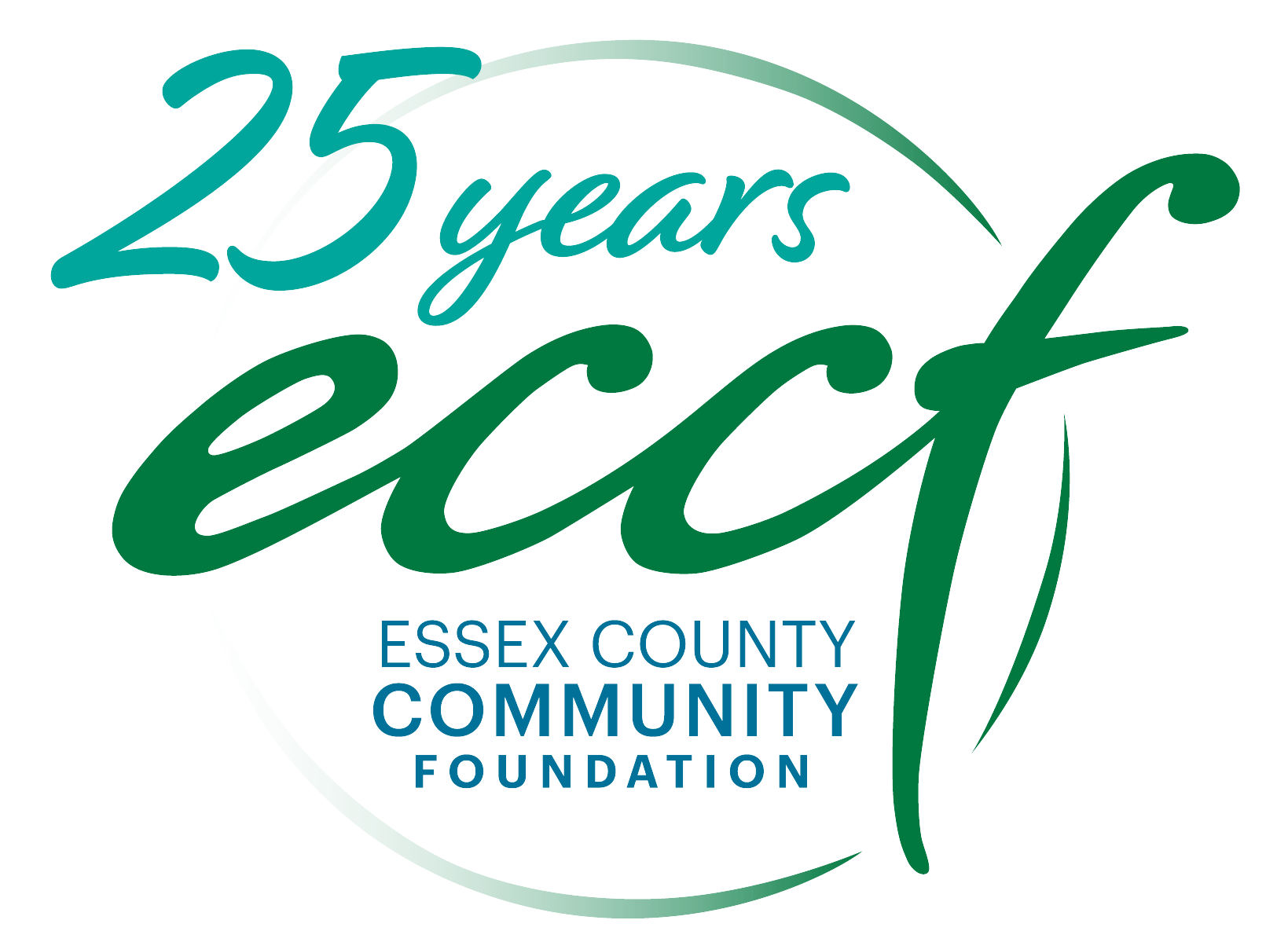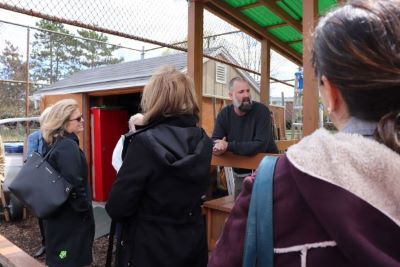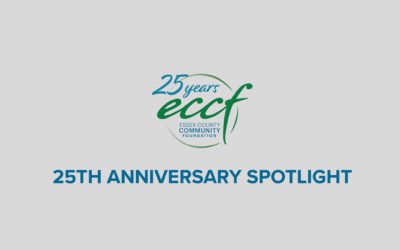The old home plate is still there at Palmer Cove Park, a beloved city green in Salem’s Point neighborhood that overlooks Palmer Cove and beyond, Salem Harbor. Though it no longer welcomes the footfall of baseball cleats stepping up for a big hit, it still beckons many residents of Salem home.
Twelve foot-high fences, remnants of Palmer Cove’s abandoned batting cage, rise around the Salem YMCA GreenSpace, a collection of well-tended garden beds that, in a few weeks time, will become lush with crops of tomatoes, lettuce, herbs and much more. But produce isn’t the only thing that grows here.
“The real reason we built this garden was to create a space for people to come together,” said Salem YMCA Executive Director Charity Lezama.
And come together they have. Each year, the GreenSpace, located right next to Salem’s Community Gardens, is host to 250 volunteers and dozens of teens hired to maintain it. For the community, it serves as an outdoor classroom, an al fresco dining spot, a meeting venue and a gathering place for an intergenerational mix of residents – from teens to senior volunteers living in nearby Pioneer Terrace – who count the garden as a sort of second home during the growing season.
“One of the goals, and one of the things I’m most proud of, is getting people to talk to each other who wouldn’t normally talk to each other,” said Matt Buchanan, the GreenSpace garden director.
A Salem High School social studies teacher, Buchanan is about as passionate as they come. And on a recent visit to the GreenSpace, he described the inner workings of the gardens, which take a lot of manpower – and about $20,000 each year – to maintain. He tells us how he hauled fresh soil dug from Salem Woods to start the gardens, the delicious recipes made on site during the Wednesday night harvests, and he talks about his beloved crew of “renegade volunteers” who find solace working peacefully in the space when the larger crew takes a break.
It becomes abundantly clear that Buchanan’s volunteers are like family to him. And while he talks, Nick, a gardener from the nearby apartments, works contentedly in the raised beds. After our tour, Buchanan drifts off from the group to clap him on the back and catch up on all things gardening.
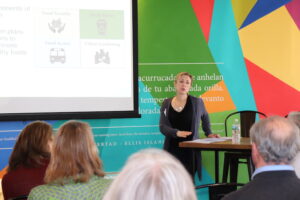 The Salem Y GreenSpace was the last stop on a recent Essex County Community Foundation Lunch & Learn tour of Salem. The purpose of ECCF’s Lunch & Learns, held three times each year, is to introduce donors, fundholders and community leaders to Essex County nonprofits and give them an inside look at their good work. In recent years, ECCF has also brought community leaders and donors to tour Lawrence, Gloucester and Lynn area nonprofits.
The Salem Y GreenSpace was the last stop on a recent Essex County Community Foundation Lunch & Learn tour of Salem. The purpose of ECCF’s Lunch & Learns, held three times each year, is to introduce donors, fundholders and community leaders to Essex County nonprofits and give them an inside look at their good work. In recent years, ECCF has also brought community leaders and donors to tour Lawrence, Gloucester and Lynn area nonprofits.
The Salem Lunch & Learn, held on April 24, provided an opportunity for guests to learn more about the systems work happening to bring social change to Salem’s Point neighborhood, which, many may not know, is listed on the National Register of Historic Places.
To start the day, more than two dozen Lunch & Learn attendees gathered for coffee at Espacio on Congress Street, a bright and airy storefront space managed by North Shore Community Development Coalition, which holds classes and trainings there, but also opens it up to nonprofits and for-profits for private use.
At Espacio, we heard from the Salem Pantry Collaborative, a collaboration of local nonprofits, community leaders and funders – including Brace Cove Foundation, Citizens Inn, North Shore CDC, The Salem Pantry and Salem State University – addressing the issue of food disparity through a mobile food market program.
Kerry Murphy, executive director of The Salem Pantry, talked about this new partnership that has enabled them to increase the number of locations and the frequency of mobile markets providing access to healthy foods for area residents.
Salem State University and the North Shore CDC’s Espacio, located in Salem’s Point neighborhood, are two of those sites.
“Our participant rate has doubled since this partnership formed,” said Murphy, who added that an additional 15,000 pounds of food has been distributed.
Until they began monthly mobile markets at Espacio last summer, there were no food pantries located in the area of Salem with the highest need. Murphy said that 80 percent of their clientele comes from the Point. Now, these mobile markets, which focus on fresh produce, are held bi-weekly.
Murphy said that 94 percent of people who attended the first Espacio market were new clients, underscoring the need for resources in this area.
“We quickly realized that there was twice as much need in Salem than in Gloucester,” said Walter Herlihy, director of Gloucester-based Brace Cove Foundation, a funder with a focus on food security that also supports the Salem Panty Collaborative. “It’s extremely gratifying to see your money…my money…work so hard.”
Detailed research and findings on food insecurity in Salem can be found in the Salem Community Food Assessment, co-authored by Murphy in 2018.
From Espacio, Lunch & Learn attendees hopped on a bus bound for Root, a nonprofit organization that provides youth ages 16-24 with the training and skills necessary for success in the workplace.
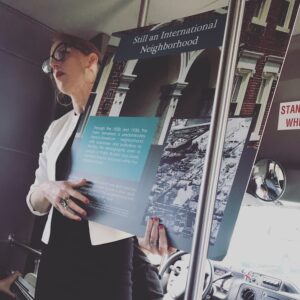 During the ride, Salem State University professor, Elizabeth Duclos-Orsello, Ph.D. – who is also a North Shore CDC board member – gave a phenomenal tour of Salem’s Point neighborhood: with a focus on its immigrant history. She talked about the area’s architectural integrity, it’s cotton mill origins and the waves of immigrants – from a variety of backgrounds – who have settled in the Point and made it their home. She recounted what life was like there in the early 20th century, anchored by the Naumkeag cotton mill at Shetland Park and the old St. Jospeh Church, and how that has come to shape what the Point is – and means – to so many today.
During the ride, Salem State University professor, Elizabeth Duclos-Orsello, Ph.D. – who is also a North Shore CDC board member – gave a phenomenal tour of Salem’s Point neighborhood: with a focus on its immigrant history. She talked about the area’s architectural integrity, it’s cotton mill origins and the waves of immigrants – from a variety of backgrounds – who have settled in the Point and made it their home. She recounted what life was like there in the early 20th century, anchored by the Naumkeag cotton mill at Shetland Park and the old St. Jospeh Church, and how that has come to shape what the Point is – and means – to so many today.
As the bus wound through Salem’s historic streets, David Valecillos, director of design for the North Shore CDC, talked about the organization’s role in the revitalization of the Point neighborhood and creating awareness about it’s rich history and offerings. In addition to creating affordable housing, developing community engagement programs and city planning, it is also the founder of the Punto Urban Art Museum, an open-air museum in the Point that contains 75 stunning large-scale murals and has become a source of pride for the community.
“It’s a collective effort of a lot of organizations,” Vaecillos said as the bus pulled slowly past the New England Artists Wall, a row of smaller murals painted by local artists such as Mattaya Fitts, Jose Santana Firpo, Susan Dodge and many more.
Pulling into Shetland Park, the sun peaked through the clouds hovering over Salem Harbor. Upstairs on the third floor, an expanse of windows overlooks the breathtaking scene. We’re standing in HarborPoint at Root, the organization’s urban-chic function space, which has become a go-to place for events in the Salem area.
Beyond is the commercial kitchen, where Michael May, Root’s associate director of programming and food service operations, explains that students of their 12-week youth program receive 200 hours of intense culinary training by Root staff and other area chefs.
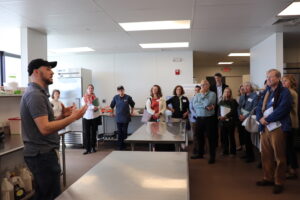 In addition, trainees – referred by local schools and organizations like the North Shore CDC and RAW Art Works in Lynn – have the opportunity to participate in an “externship” at one of over 40 area restaurants, hotels and caterers. They also come away with personal finance and money management skills, a professional resume and the chance to work events booked at HarborPoint and at the counter of the Root Café, the organization’s in-house coffee shop and bakery.
In addition, trainees – referred by local schools and organizations like the North Shore CDC and RAW Art Works in Lynn – have the opportunity to participate in an “externship” at one of over 40 area restaurants, hotels and caterers. They also come away with personal finance and money management skills, a professional resume and the chance to work events booked at HarborPoint and at the counter of the Root Café, the organization’s in-house coffee shop and bakery.
Root executive director Scott Knox explained that the Root youth program is an alternative for students for whom college may not be the right path. In 2019, he added, Root’s goal is to serve 80 youth trainees.
“Our heart and soul is our youth training program,” he said.
The ultimate goal of the program is to provide a core foundation critical for employment and self-sufficiency. And Knox said it is relationships – with partner organizations and businesses, donors and community members – that make it all possible.
“We can’t do this without partnerships,” he said.
Partnerships. It’s a word that was used often that morning in Salem. Because the work that is critical to improving the quality of life in our communities can only occur when we act together. This is something that ECCF believes in wholeheartedly.
“The strength of these partnerships is what is making the difference,” said Beth Francis, president and CEO at ECCF. “Many organizations often address the needs of the same population, but they support them in different ways. When they come together, make those connections, listen and understand how they each have value in addressing people’s needs: that is how we make things happen.”
